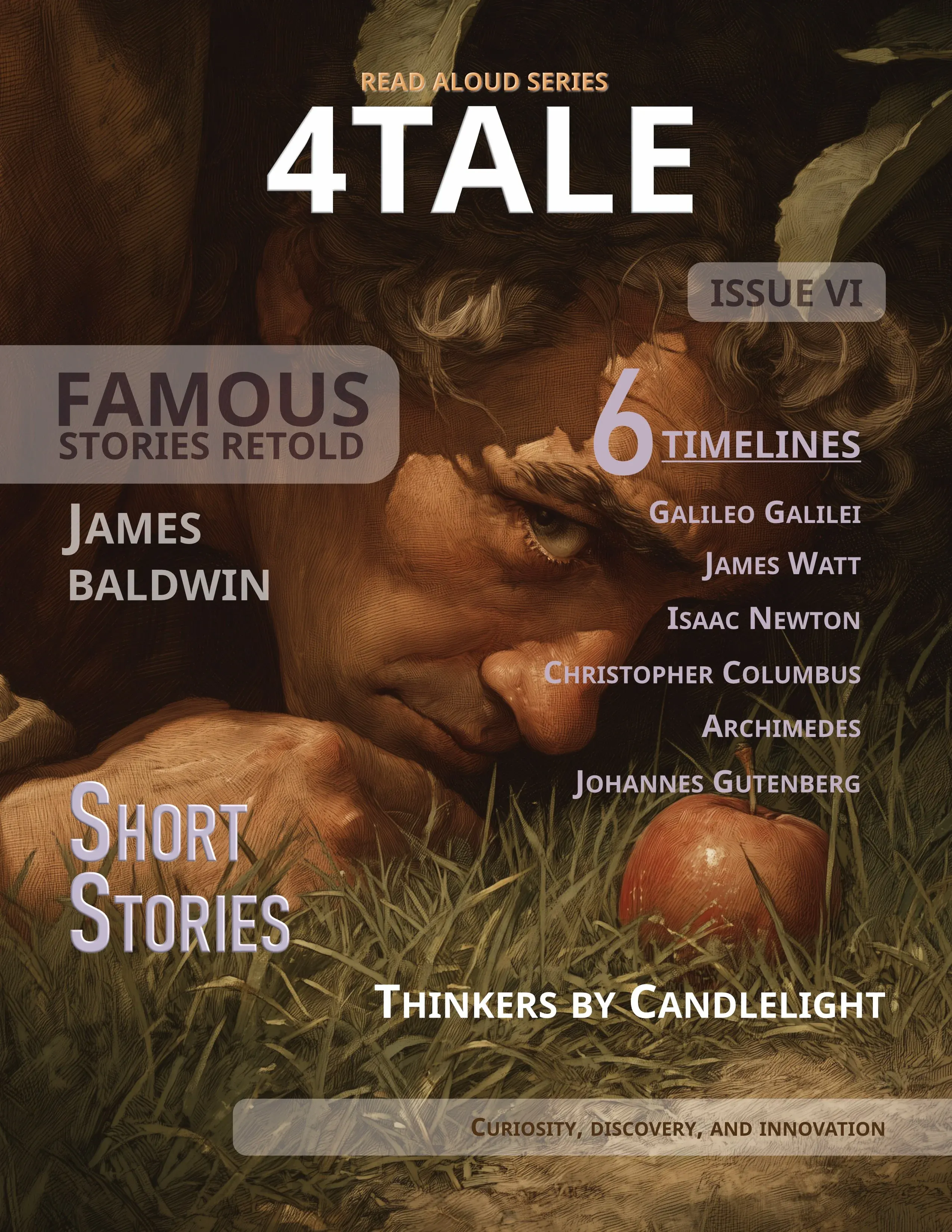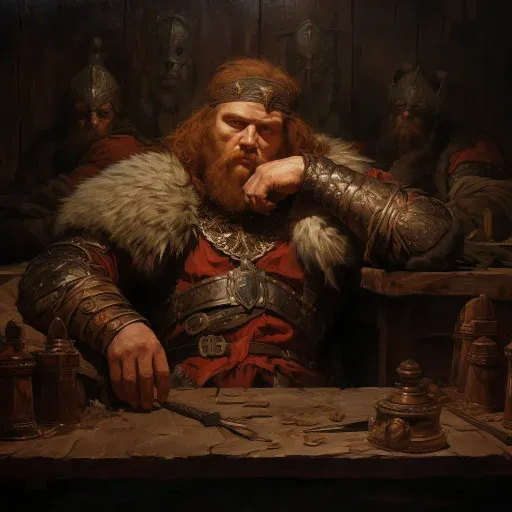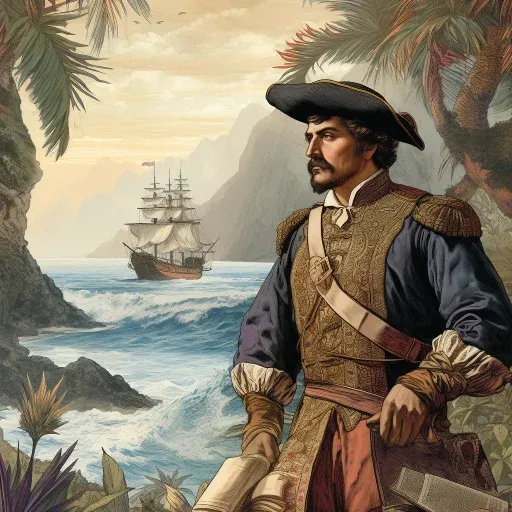BY JAMES BALDWIN
Columbus and the Egg
Famous Stories Retold: Story 1 of 30
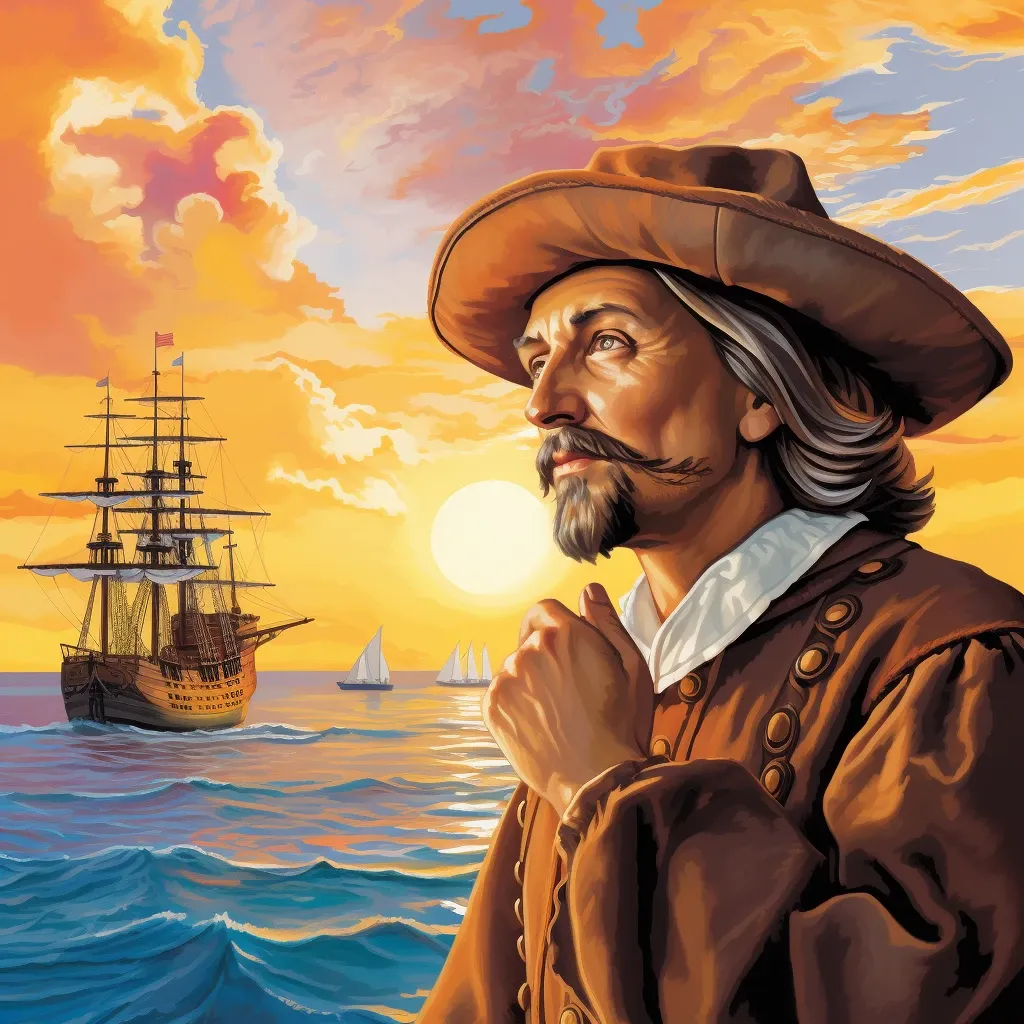
Heading

Skepticism and Support: Initially, Columbus faced much skepticism and was laughed at as a foolish dreamer. Eventually, the king and queen of Spain provided him with ships for his voyage.
Egg Challenge: To illustrate that it is easy to replicate an idea once shown, Columbus challenged his critics to make an egg stand on end. When they failed, he demonstrated it by gently breaking the shell.
A good book we like, we explorers. That is our best amusement, and our best time killer
- Roald Amundsen, Explorer
The Story of Columbus's Ingenious Egg Experiment
Get into the extraordinary saga of Christopher Columbus, the intrepid explorer who transformed the world's geographical understanding in 1492. This engaging narrative recounts his audacious voyage, the skepticism he faced, and the triumphant homecoming. But above all, it unravels the fascinating anecdote of Columbus and the egg, symbolizing his unique ingenuity. Embark on this historical journey to explore how Columbus silenced his critics, proving that the seemingly impossible can become simple once illuminated by the torch of discovery and innovation.
The Early Life and Dreams of Christopher Columbus
Born in the bustling port city of Genoa, Italy, Christopher Columbus grew up surrounded by tales of adventurous seafarers and distant lands. As a young boy, he dreamt of navigating the vast expanses of the sea, his mind filled with the allure of exploration and discovery. These childhood dreams were not fleeting whims; they sculpted a path for a future that would change the course of history. Columbus dedicated his life to his passion, spending eighteen years meticulously planning his maiden voyage across the Atlantic. His unwavering commitment reflects the profound belief he had in his dreams, a belief that would later fuel his momentous discoveries.
Columbus's Unyielding Faith and the Skepticism of Others
Columbus's revolutionary idea of reaching the East by sailing west was met with skepticism and ridicule. His contemporaries, confined by traditional views of the world, dismissed him as nothing more than a fanciful dreamer. Sailors, scholars, kings, and princes alike, all doubted his audacious plan. Yet, Columbus remained resolute in his belief. His conviction was so unyielding that he managed to convince the monarchs of Spain, King Ferdinand and Queen Isabella, to sponsor his ambitious expedition. They gave him the means to put his theory to the test, providing him with ships and crew for his voyage. Columbus's faith in the face of skepticism serves as a testament to his perseverance and courage.
Dive Deeper 'Timeless Wisdom' Podcast
Video with Captions and Visualizer
The Fateful Voyage: Columbus Discovers New Lands
On October 12, 1492, Columbus's dreams met reality when he set foot on uncharted lands. Despite the perilous journey across the Atlantic, he and his crew discovered strange, new lands inhabited by people unlike any known to Europeans. Believing he had reached the eastern fringes of India, Columbus had, in fact, stumbled upon a whole new world. The lands he discovered would later be recognized as part of the American continent. This voyage marked a pivotal moment in human history, redefining geographical boundaries and opening new avenues for exploration and colonization.
The Hero's Return: Celebration and Envy
Upon Columbus's triumphant return to Spain, the streets were filled with jubilant crowds, eager to catch a glimpse of the man who had dared to sail into the unknown and returned with tales of new lands. He was hailed as a hero, a man who had gifted a new world to the kingdom of Spain. The king and queen themselves welcomed Columbus to their palace, hanging on to his every word as he recounted the events of his voyage.
However, not everyone was as enthusiastic in their praise for Columbus. There were some who, blinded by envy, questioned his achievements. They belittled his discovery, reducing it to a mere seaman's task, achievable by any mariner. To them, Columbus was nothing more than a pauper pilot from Italy who had gotten lucky.
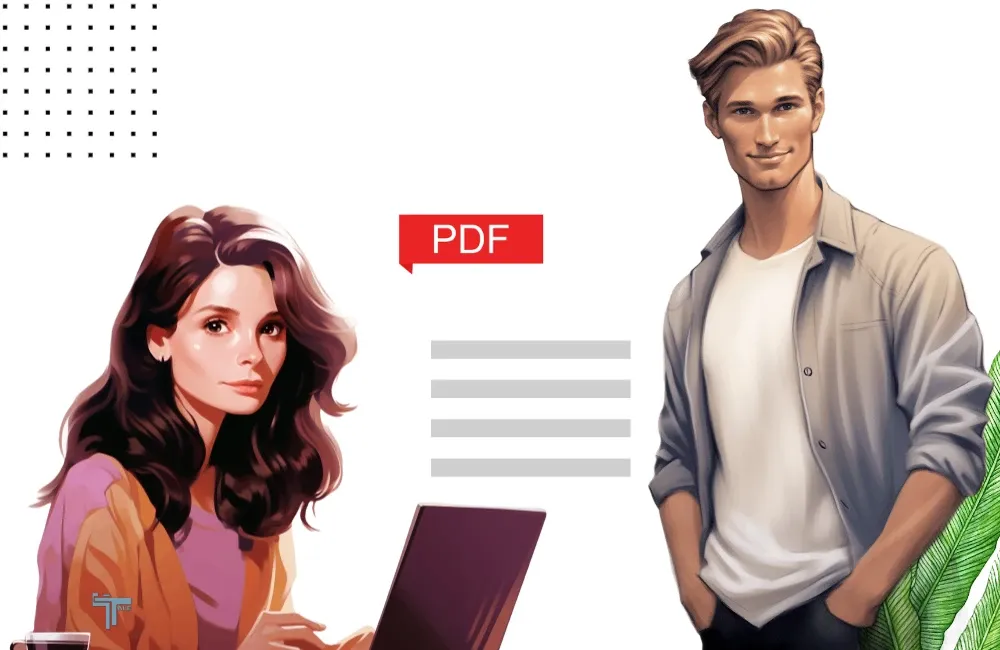
A Challenge at the Banquet: The Egg Experiment
During a banquet held in Columbus's honour, these doubters made their disdain for the explorer all the more apparent. They attempted to belittle his accomplishments, stating that anyone could have sailed across the ocean and discovered new lands.
In response, Columbus challenged them to make an egg stand on its small end, a task that seemed simple but proved impossible for the men at the banquet. When all had admitted defeat, Columbus gently cracked the shell of the egg and made it stand upright, much to the astonishment of the onlookers.
The Underlying Message: Columbus's Response to the Doubters
"What is easier than to do this which you said was impossible? It is the simplest thing in the world. Anybody can do it—after he has been shown how," said Columbus after his demonstration, his words a sharp retort to his critics. This was his response to their skepticism, a metaphorical slap to the faces of those who doubted him.
By this simple yet profound act, Columbus demonstrated that the simplest tasks can seem impossible until someone dares to show how it's done, just like his voyage across the Atlantic. This was a reminder to his doubters and to us all that new paths only seem impossible until they are treaded.
Conclusion
In this enthralling chronicle, we navigated through Columbus's audacious life, his relentless faith despite skepticism, and his groundbreaking voyage that reshaped our understanding of the world. We celebrated his triumphant return, touched the envy it sparked, and relived the iconic egg experiment. Columbus's response to his doubters serves as a timeless reminder — things may seem impossible until illuminated by the light of discovery and innovation. His tale stands as a testament to human ingenuity and the power of unwavering belief. Truly, the story of Columbus and the egg is a remarkable blend of discovery and cleverness.

